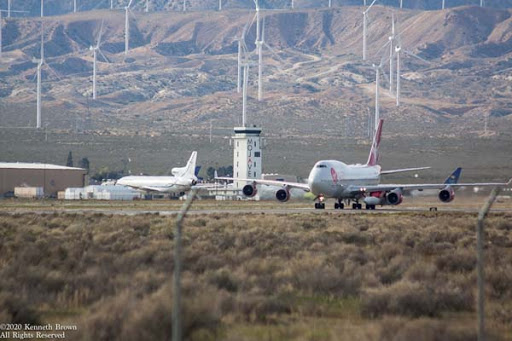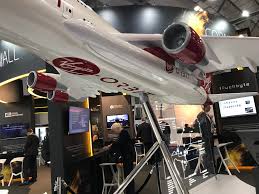From Glasgow to Sydney in half an hour: UK bets оn suborbital space tourism
7th Jun 2021
Rapid technology development offers humanity more opportunities to explore space and even introduce suborbital space tourism. NASA is about to return to the Moon and is broadcasting video from Mars, while Elon Musk is deploying a global satellite network in orbit to cover every corner of our planet with broadband internet.
The interest in suborbital flights, both passenger and cargo ones, is growing as well. The technology is not new and has been around since NASA’s Mercury and Space Shuttle programs of the 20th century. But back then it was very expensive, so only a country of the USA scale could afford such a budget.
The 21st century has given the world private space industry, opening new opportunities to make space launches safer and more accessible. The leading New Space companies Blue Origin, Virgin Galactic, and Space X are actively developing the suborbital flight niche and promise that already in 2022-2023, flying back and forth in space will be as easy as going to the nearest supermarket.
The First UK spaceports that could become operational in the next two years will allow the UK to develop a suborbital tourism niche and create real competition for air travel.
UK space & suborbital space tourism potential
The UK’s geographic location is favourable for space launches. However, the idea to make use of this advantage emerged only a few years ago. The government and the UK Space Agency are preparing projects for the first UK spaceports. Sites under consideration include Cornwall, Sutherland, Shetland, Snowdonia, and Prestwick. The authorities expect to commission both vertical and horizontal launch sites in the near future. These sites have the following advantages:
- proximity or direct access to the sea, which allows to splash down rockets’ first stages into the water for further reuse;
- a long runway (in the case of Prestwick and Cornwall, based at airports);
- free air traffic;
- few buildings in the area;
- remote location from residential buildings;
- perfect location for launching payloads into polar orbits along the shortest trajectory;
- developed ground infrastructure.
Commissioning spaceports will not only attract investment and create jobs for the British economy but could also make the UK a European leader in launching payloads and carrying out suborbital flights.
New Shepard, SpaceShipTwo, and others
SpaceX, Space Adventures, Bigelow Aerospace, Virgin Galactic, and Blue Origin have already implemented space tourism projects, either partially or fully. But only the last two companies focus on suborbital tourism and plan to make such flights regular.
Suborbital tourism implies crossing the Karman line (100 km), after which space begins, at speed below the first space speed (7.9 km per second), which is required to enter orbit. That is, you will not get into orbit, which is not at all necessary, but you will see the black matter, stars, the Earth, and the Moon in all their glory. Very soon, perhaps by 2030, suborbital flights will cease to be a mere tourist attraction and will become regular transportation along with air flights. The advantages of using space vehicles instead of aircraft for transportation are obvious:
- the speed is up to 20 times higher;
- increased carrying capacity;
- overcoming long distances in a short time.
For example, the flight from Glasgow to Sydney could take 30-40 minutes instead of 20 hours with a transfer! And the possibilities of cargo delivery will simply become limitless.
This spring, Blue Origin announced the sale of tickets for the first passenger flight on its New Shepard suborbital shuttle. The six-seater vehicle with automatic controls has successfully passed a flight test with dummies and is ready for a real journey beyond Earth. The flight will last for 11 minutes, and the passengers will experience zero-gravity conditions for three minutes. Relaxing in comfortable seats, passengers will be able to talk using special communication helmets and watch the enchanting grandeur of space through metre-long windows.
The American company Virgin Galactic is getting ready to launch a manned vehicle SpaceShipTwo. There will be two pilots and six passengers on board. They will reach an altitude of 135-140 km and stay in zero gravity for about 6 minutes.
The first launch is planned from a US spaceport, but given that Virgin’s owner Richard Branson is an Englishman, it is possible that after the UK spaceports are commissioned, SpaceShipTwo will also be launched from Britain. Besides, one of Branson’s companies, Virgin Orbit, is already working with Cornwall spaceport and plans to launch its horizontal Cosmic Girl-Launcher One system from there. So, suborbital space tourism is already around the corner.






Thank you for your comment! It will be visible on the site after moderation.